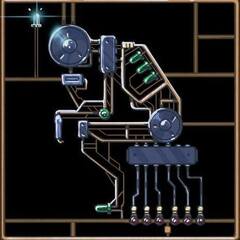HDD always at 97%
-
Topics
-
0
-
ronaldowrld ·
Posted in Troubleshooting0 -
GC180 ·
Posted in Troubleshooting0 -
GT710 Connoisseur ·
Posted in Displays0 -
1
-
Shadeamous ·
Posted in Networking5 -
0
-
sturedoc ·
Posted in Cases and Mods0 -
3
-
TurboTrym ·
Posted in Troubleshooting2
-
-
play_circle_filled

Latest From Linus Tech Tips:
AMD Is Copying The Worst Thing About Intel - WAN Show May 31, 2024


.png.255947720031a641abdac78e663b681c.png)













Create an account or sign in to comment
You need to be a member in order to leave a comment
Create an account
Sign up for a new account in our community. It's easy!
Register a new accountSign in
Already have an account? Sign in here.
Sign In Now